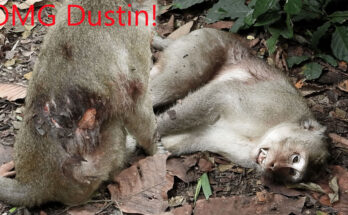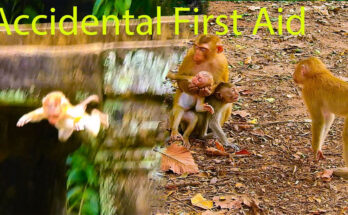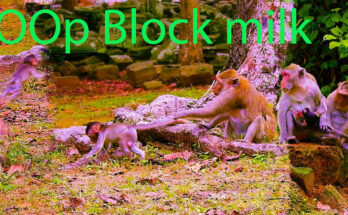BABY Orangutan HUJAN at KREFELD ZOO
At Krefeld Zoo in Germany, a tiny miracle arrived on a cool autumn morning—an adorable baby orangutan named Hujan. The name, which means “rain” in Indonesian, was chosen to honor the much-needed rain that had finally fallen after weeks of dry weather. His birth was a moment of joy and hope, not just for the zoo’s caretakers but for orangutan conservation efforts worldwide.
Hujan was born to his loving mother, Sunda, a gentle and attentive orangutan who had given birth before. From the moment he entered the world, clinging tightly to her thick, reddish fur, it was clear that their bond was unbreakable. Sunda cradled him close, her large, dark eyes filled with instinctive love and care. The other orangutans in the enclosure watched curiously, fascinated by the tiny new addition to their family troop.
For the zookeepers, Hujan’s arrival was a significant milestone. Sumatran orangutans, like those at Krefeld Zoo, are critically endangered due to deforestation, habitat destruction, and illegal poaching. Every birth is a step toward ensuring the survival of this intelligent and gentle species. The zoo’s breeding program, which is part of a larger conservation effort, aims to raise awareness about orangutans and their fragile existence in the wild.
Hujan’s first days were filled with warmth and security. Clinging to Sunda’s belly, he rarely left her side. His tiny hands, already strong, gripped her fur tightly as she moved about the enclosure. Occasionally, he would lift his little head, his bright eyes blinking curiously at the world around him. Though still fragile and completely dependent on his mother, his presence was already a source of excitement for visitors and caretakers alike.
As the weeks passed, Hujan began to show signs of his developing personality. He was an inquisitive little orangutan, reaching out toward leaves, toys, and even the zookeepers who cared for him. His mother, ever protective, kept him close but allowed him small moments of independence. One of his favorite activities was grasping at his mother’s fingers, testing his strength as he learned to hold on more securely.
Krefeld Zoo’s visitors were delighted by the new arrival. Families gathered near the orangutan habitat, watching in awe as Hujan nestled into his mother’s arms or curiously observed his surroundings. For children, seeing a baby orangutan up close was an unforgettable experience—one that sparked conversations about the importance of protecting wildlife.
The zookeepers ensured that both mother and baby received the best care possible. Sunda was given a nutritious diet filled with fruits, vegetables, and special supplements to keep her strong while nursing Hujan. The keepers also monitored their interactions carefully, making sure that the little one was growing at a healthy rate.
Hujan’s playful spirit became more evident as he grew older. He would reach for his mother’s face, tugging at her lips or ears, making her huff in amusement. Occasionally, he attempted to climb onto her back, though his wobbly movements often ended with him tumbling back into her arms. His curiosity extended to the other orangutans in the enclosure, who watched him with patient fascination. One of the younger females, named Maja, seemed particularly interested in the baby, often sitting nearby as if waiting for the chance to interact with him.
Despite being born in captivity, Hujan’s life carried great significance. Orangutans are among the most intelligent primates, sharing nearly 97% of their DNA with humans. They use tools, communicate with gestures, and form deep social bonds. By giving Hujan the best start in life, the zoo was not only ensuring his well-being but also raising awareness about the plight of his wild relatives.
As Hujan approached his first birthday, he began to explore more confidently. He still clung to Sunda for comfort, but he also reached out to grasp branches and ropes, testing his growing strength. His movements were clumsy yet determined, a sign that one day he would be an independent orangutan.
For now, though, he remained Krefeld Zoo’s little rain baby—bringing joy to everyone who had the privilege of watching him grow. His presence served as a reminder of the beauty of nature and the urgent need to protect it, ensuring that future generations could continue to marvel at the incredible world of orangutans.


